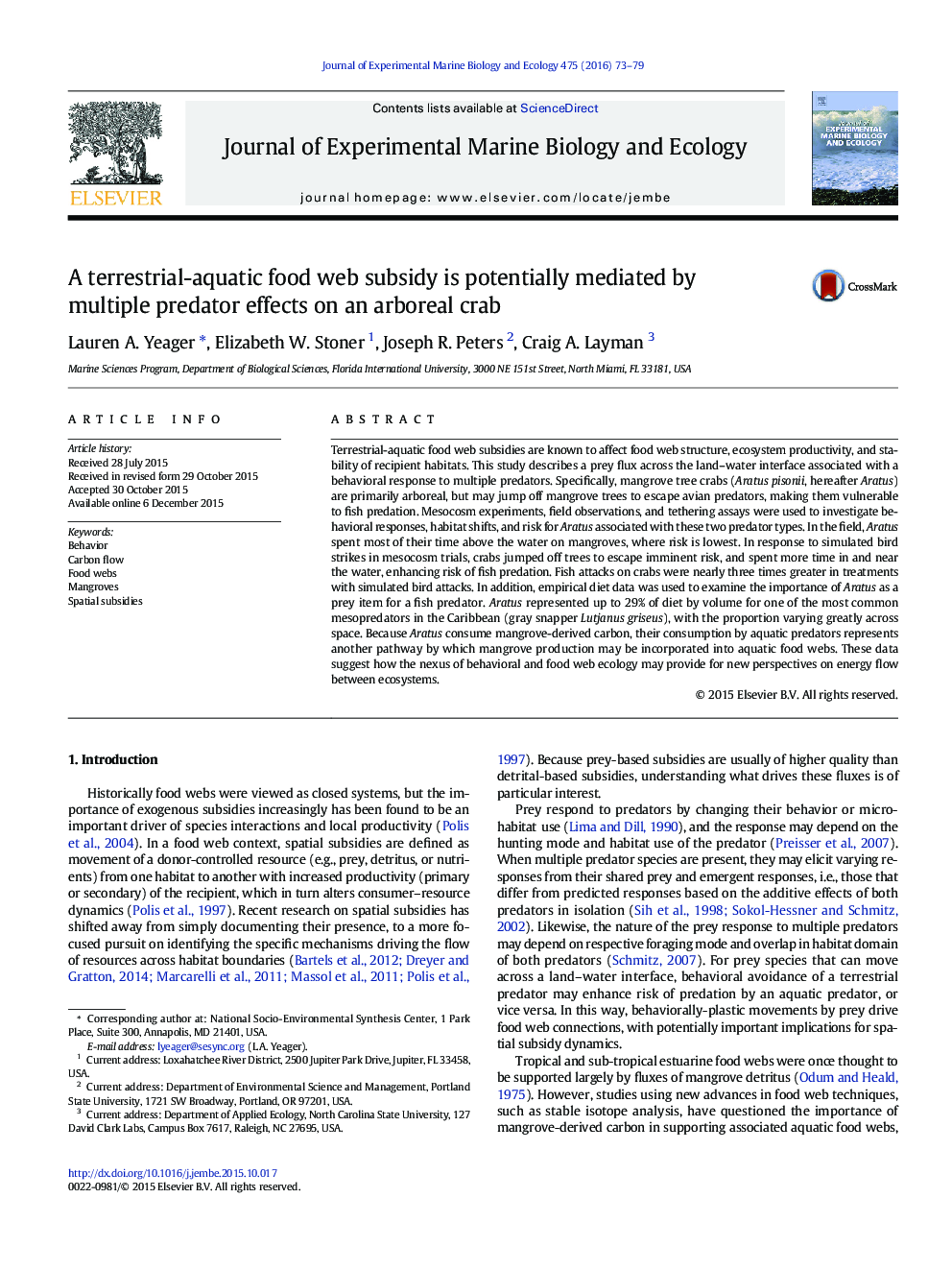| کد مقاله | کد نشریه | سال انتشار | مقاله انگلیسی | نسخه تمام متن |
|---|---|---|---|---|
| 4395281 | 1618400 | 2016 | 7 صفحه PDF | دانلود رایگان |
• Arboreal crabs exhibit divergent behavior in the presence of different predators.
• Bird predation increases exposure of crabs to fish predation.
• Multiple predator effects determine the overall strength of food web subsidy.
• Data suggest a direct pathway of carbon flow from terrestrial to marine systems.
Terrestrial-aquatic food web subsidies are known to affect food web structure, ecosystem productivity, and stability of recipient habitats. This study describes a prey flux across the land–water interface associated with a behavioral response to multiple predators. Specifically, mangrove tree crabs (Aratus pisonii, hereafter Aratus) are primarily arboreal, but may jump off mangrove trees to escape avian predators, making them vulnerable to fish predation. Mesocosm experiments, field observations, and tethering assays were used to investigate behavioral responses, habitat shifts, and risk for Aratus associated with these two predator types. In the field, Aratus spent most of their time above the water on mangroves, where risk is lowest. In response to simulated bird strikes in mesocosm trials, crabs jumped off trees to escape imminent risk, and spent more time in and near the water, enhancing risk of fish predation. Fish attacks on crabs were nearly three times greater in treatments with simulated bird attacks. In addition, empirical diet data was used to examine the importance of Aratus as a prey item for a fish predator. Aratus represented up to 29% of diet by volume for one of the most common mesopredators in the Caribbean (gray snapper Lutjanus griseus), with the proportion varying greatly across space. Because Aratus consume mangrove-derived carbon, their consumption by aquatic predators represents another pathway by which mangrove production may be incorporated into aquatic food webs. These data suggest how the nexus of behavioral and food web ecology may provide for new perspectives on energy flow between ecosystems.
Journal: Journal of Experimental Marine Biology and Ecology - Volume 475, February 2016, Pages 73–79
